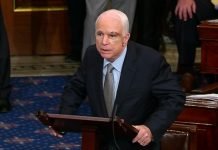There appears to be a direct correlation between counties banning alcohol sales and increased meth problems within the county. New research from the University of Louisville has concluded that prohibiting alcohol sales leads to increased numbers of meth labs and meth-related crimes.
The researchers looked at counties withing the state of Kentucky and compared the incidences of meth labs and meth-related crimes among dry, moist, and wet counties. Dry counties ban the sale of alcohol completely. Moist counties place restrictions on the sale of alcohol. Wet counties don’t place and restrictions on the sale of alcohol.
“If all counties were to become wet, the total number of meth lab seizures in Kentucky would decline by about 25 percent,” the researchers found.
The reason, according to the researchers, is that banning alcohol sales has a normalizing effect on other black market sales. Alcohol, which is relatively innocuous when compared the meth, being illegal to purchase makes it more routine for those who still purchase it to trade in illegal sales.
For more on this, read the article from the Washington Post titled: “These places banned booze. Now they’re dealing with something far worse.”



